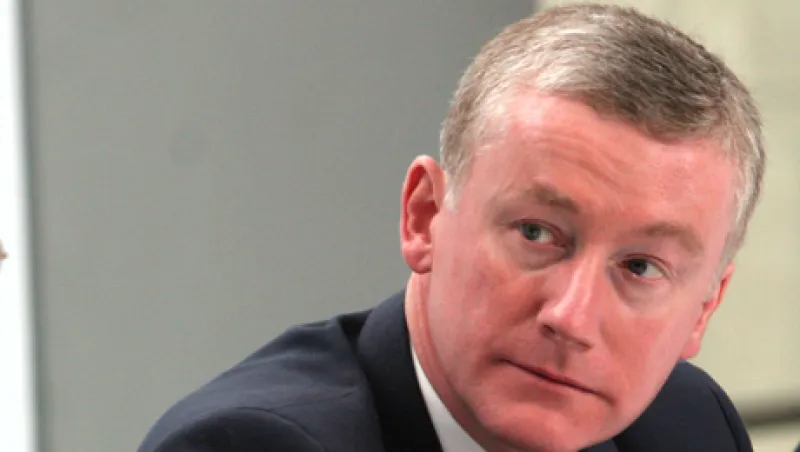Royal Bank of Scotland CEO Stephen Hester’s decision late on January 29 to forgo a £1 million ($1.3 million) bonus following intense political pressure offers only short-term relief for the bank. The state-owned institution is set to reveal the size of its investment banking bonus pool next month, as well as details of other pay awards to senior executives, all of which is sure to generate fresh controversy and make RBS a less attractive place to work. The government, meanwhile, is bowing to public anger about well-paid bankers and on January 31 stripped disgraced former RBS chief executive Fred Goodwin of his knighthood.
Senior bankers at RBS are privately furious that RBS’s remuneration policies have become a political issue since the government’s 82 percent shareholding is typically managed — at arm’s length — by U.K. Financial Investments, a Treasury agency run by ex–investment bankers. The understanding had been that RBS would be run as a normally listed bank in preparation for full privatization.
Hester waived his bonus after the opposition Labor Party tabled a House of Commons vote on the subject, but the Coalition government itself also urged Hester to decline his payment. On January 29 the Work and Pensions secretary Iain Duncan Smith said, “nobody would be happier than the government” if Hester turned down the bonus. The government, headed by David Cameron, is leading an austerity drive that has already cut public sector pay and is seeking to curb board-level remuneration.
Next month RBS is likely to unveil a bonus pool of £500 million for its investment bankers, less than half the size of last year’s but still politically combustible, as well as payments to other highly paid senior staff covered by the Financial Services Authority’s Remuneration Code. Last year RBS paid a total of £375 million to 325 of its top executives. And in April of this year, John Hourican, CEO of the investment banking division, stands to gain shares worth about £5 million if he meets certain undisclosed performance targets. If these payments too are scrapped or curbed, RBS’s ability to recruit talented bankers will be seriously affected.
Hester’s forgone award, consisting of shares that would have vested in late 2014, was only 60 percent of his full entitlement, as chairman Sir Philip Hampton pointed out in his highly defensive announcement of the bonus on January 27. “The board is aware of the difficulties in trying to reconcile the competing objectives of all our stakeholders. This is especially true on the issue of pay,” he said. “His pay is strongly geared to the recovery of RBS, which he was recruited to turn around, having played no part in its collapse.”
Hester’s achievements in cutting the size of RBS’s balance sheet and offloading noncore assets are widely acknowledged in the City of London, even if institutional shareholders have been unwilling to court unpopularity by supporting him publicly of late. Most sell-side analysts have ‘buy” notices on RBS shares. Opposition leader Ed Milliband accepted that Hester had “done a decent job” since becoming CEO of the bailed out bank in 2009.
But political circumstances have cost him dearly as has the European sovereign debt crisis, both of which have weighed heavily on the share price. At 27 pence on January 30, it is barely more than half of the 51 pence price at which the government bought its stake in 2008–'09. Privatization looks a long way off, leaving RBS vulnerable to political attack.






